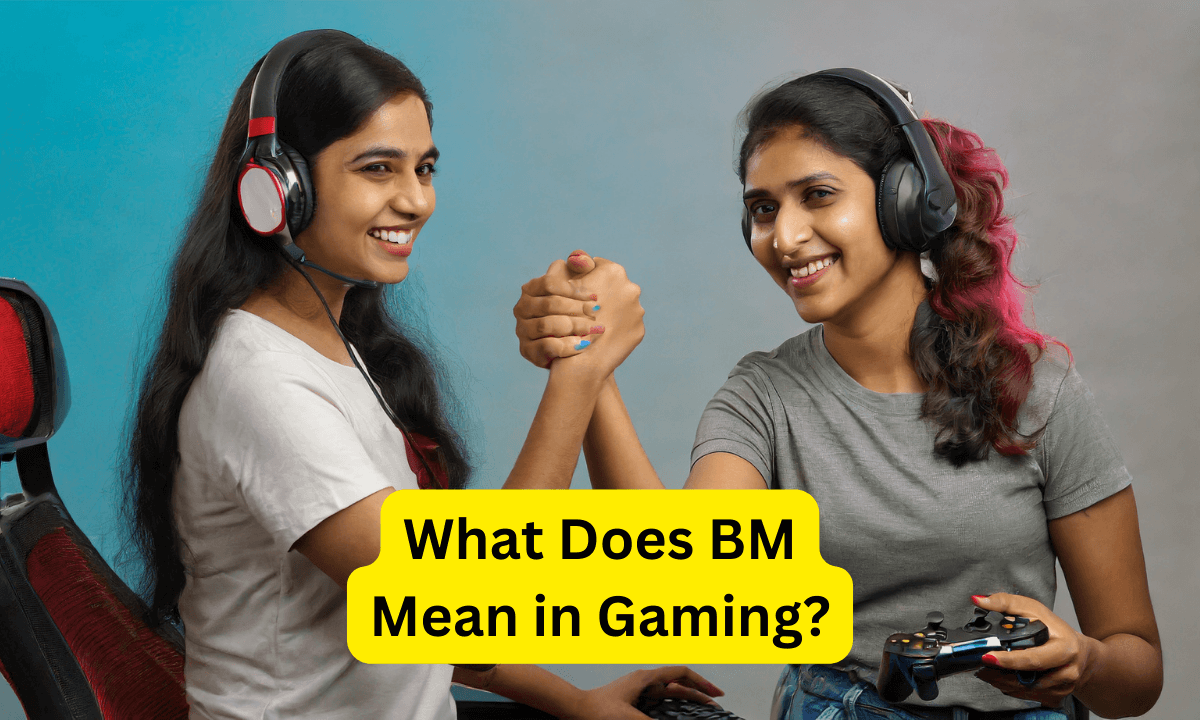In the dynamic world of competitive gaming, where virtual arenas host fierce contests of ability and cunning, a subdued but potent force frequently moulds the entire gaming experience: bad manners (BM). Its origins lie in the competitive nature of gaming; it describes actions that are not only impolite but also have the ability to cause strife within the gaming community.
What is the origin of the term “BM”?
One theory is that Starcraft and its sequel are where the shorthand for “bad manners,” “BM,” first appeared. The idea of BM originated from the competitive nature of Starcraft and its intense player vs player interactions.
Since gaming lingo frequently crosses genre boundaries, the idea of “bad manners” permeated other competitive games, impacting player conduct and forming the dynamic code of sportsmanship that exists within the gaming community.
What is the abbreviation „bm“ in gaming? It‘s for bad manners ie being not a good sports and blaming a loss on circumstances instead of trying to improve yourself. But careful, in German ‚bm‘ also means ‚bis morgen‘ ie see you tomorrow. #gaming #esports pic.twitter.com/NI9u3kpL1r
— ChiefAvalon (@chiefavalon) January 3, 2020
Which kinds of BM exist?
There are several ways that bad manners in gaming can appear, and each one highlights a different aspect of unsportsmanlike behaviour in the gaming community. A more thorough investigation of BM comprises feeding the opposition team on purpose: Giving opponents a purposeful edge that undermines the spirit of fair competition.
Killing your own teammates: Undermining your own team’s efforts, causing discord within and impeding cooperative gaming.
Persistent negativity/whining: Throughout the game, voice your concerns or displeasure, creating a toxic environment for all players.
Failing to congratulate opponents: Ignoring the spirit of sportsmanship and refusing to recognise the ability or accomplishment of rival players.
Rubbing in a victory: Excessive self-promotion following a win, frequently at the expense of the losing side, which creates a negative atmosphere after the game.
Dragging out a game on purpose is when a player purposefully prolongs a match, which impedes competition and irritates other players.
Verbal abuse: Using derogatory language or calling someone names, which helps to keep the gaming community hostile.
Cheating: Cheating is the use of unapproved strategies to obtain an unfair advantage while compromising the fairness of the competition.
When a team is losing, leaving the game or purposefully going AFK can have a detrimental effect on fair play and team dynamics.
See What Does Pog Mean in Video Games.
Which games have a lot of BM in them?
Online gaming is known for its “bad manners,” or BM, and it can be challenging to determine which games have the highest BM without taking into account elements like player population, level of competition, and community culture. However, the following games are frequently linked to a higher prevalence of BM, based on anecdotal evidence and player discussions:
League of Legends: Due to its high stakes and fierce competition, this MOBA (Multiplayer Online Battle Arena) game can lead to player toxicity and BM.
Dota 2: Another well-known MOBA, Dota 2 is comparable to League of Legends in many aspects, including its competitive structure and BM potential.
The first-person shooter game Counter-Strike: Global Offensive (CS:GO) is well-known for its fast-paced action and strategic strategy, which can cause player BM and frustration.
VALORANT: Despite being a relatively new tactical shooter game, it has already developed a bad reputation due to its high level of BM and poisonous community.
World of Warcraft (WoW): With a large player base and a variety of gameplay activities, this massively multiplayer online role-playing game can result in bullying (BM) in a number of ways, such as through griefing other players or trash-talking them in chat.
It’s crucial to remember that BM may happen in any online game that has a competitive aspect; it’s not only limited to these titles. In the end, a game’s level of BM is determined by player conduct and the conventions that emerge in the surrounding community.
Here are some more elements that may also have a role in BM when playing online games:
- Anonymity: Because online gaming is anonymous, people may act more boldly than they would in person, which increases BM.
- Competitive pressure: In games with big stakes or a significant emphasis on competition, the drive to succeed can result in frustration and BM.
- Lack of accountability: In many games, there are no clear consequences for BM, which can lead to its increased prevalence.
- Community culture: The degree of BM might vary depending on the culture of the game’s community; some are more accepting of BM than others.
Developers can take a number of steps, like tighter chat moderation, in-game reporting mechanisms, and heavier punishments for BM, to lessen BM in online gaming. Furthermore, fostering courteous behaviour and healthy community values can contribute to making the gaming environment more inviting and fun for all players.
Games as BM Breeding Grounds:
Although BM can appear in any competitive gaming setting, several games have become notorious for having a higher than average amount of ill manners. Among these are the well-known titles Dota 2, League of Legends, and Hearthstone. Players participate in a variety of unsportsmanlike actions in these virtual arenas, which fosters an environment where competition transcends the rules of fair play.
Effect of BM on the Gaming Community:
As esports work to gain traction in the general public, player behaviour becomes a more important concern. The prevalence of BM can harm esports’ overall growth and reputation in addition to negatively impacting individual players’ gaming experiences. Fostering a welcoming and healthy gaming community requires finding a careful balance between constructive criticism and light hearted banter.
Conclusion:
In summary, bad manners in gaming are a complex issue that include a broad range of actions that are counterproductive to the spirit of fair play. It is essential knowledge about BM’s beginnings, prevalence, and effects for both players and the larger gaming community. Players may support esports’ expansion and success in the dynamic world of competitive gaming by fostering good behaviour, supporting sportsmanship, and working together to create a polite gaming environment.








